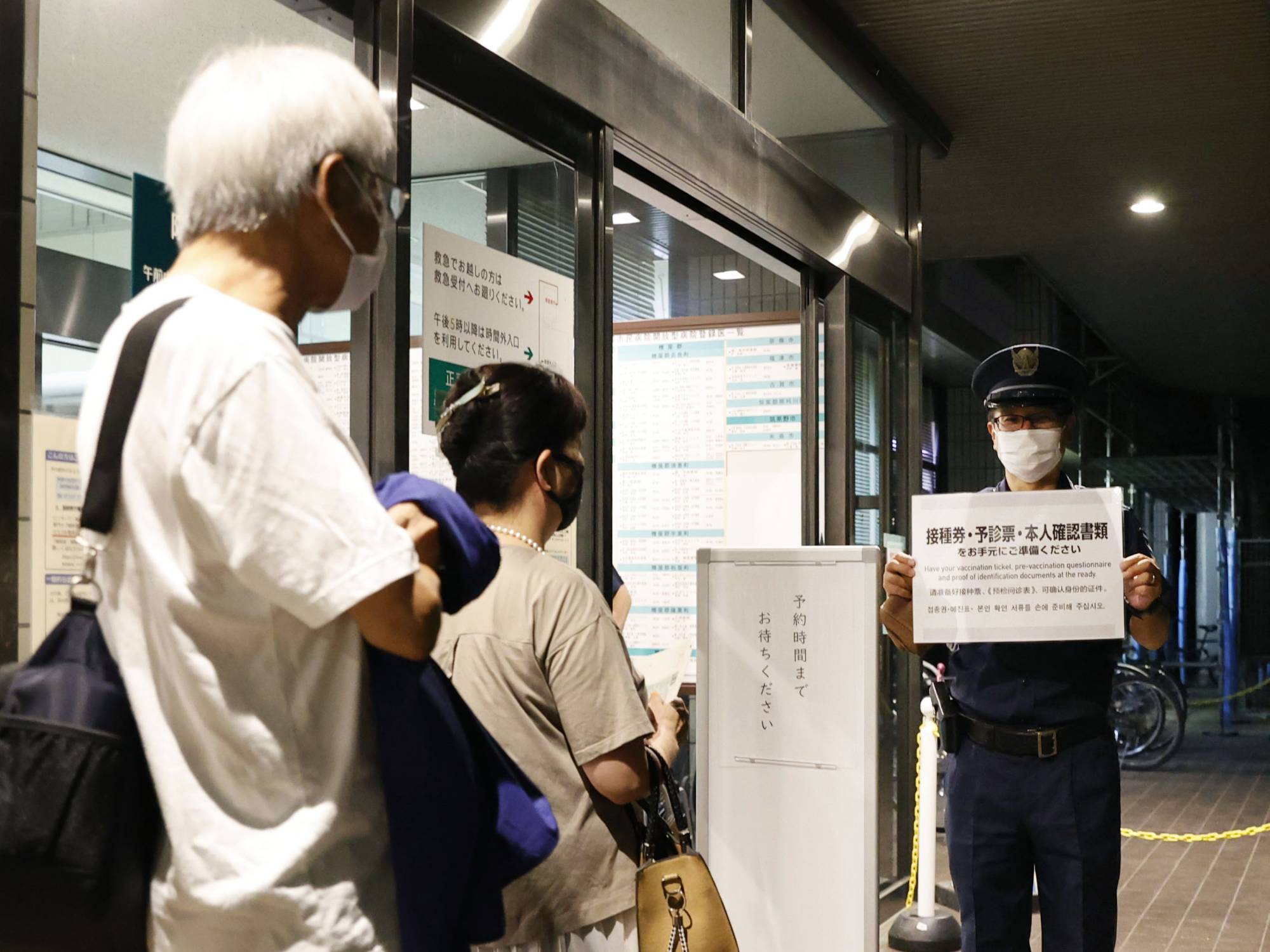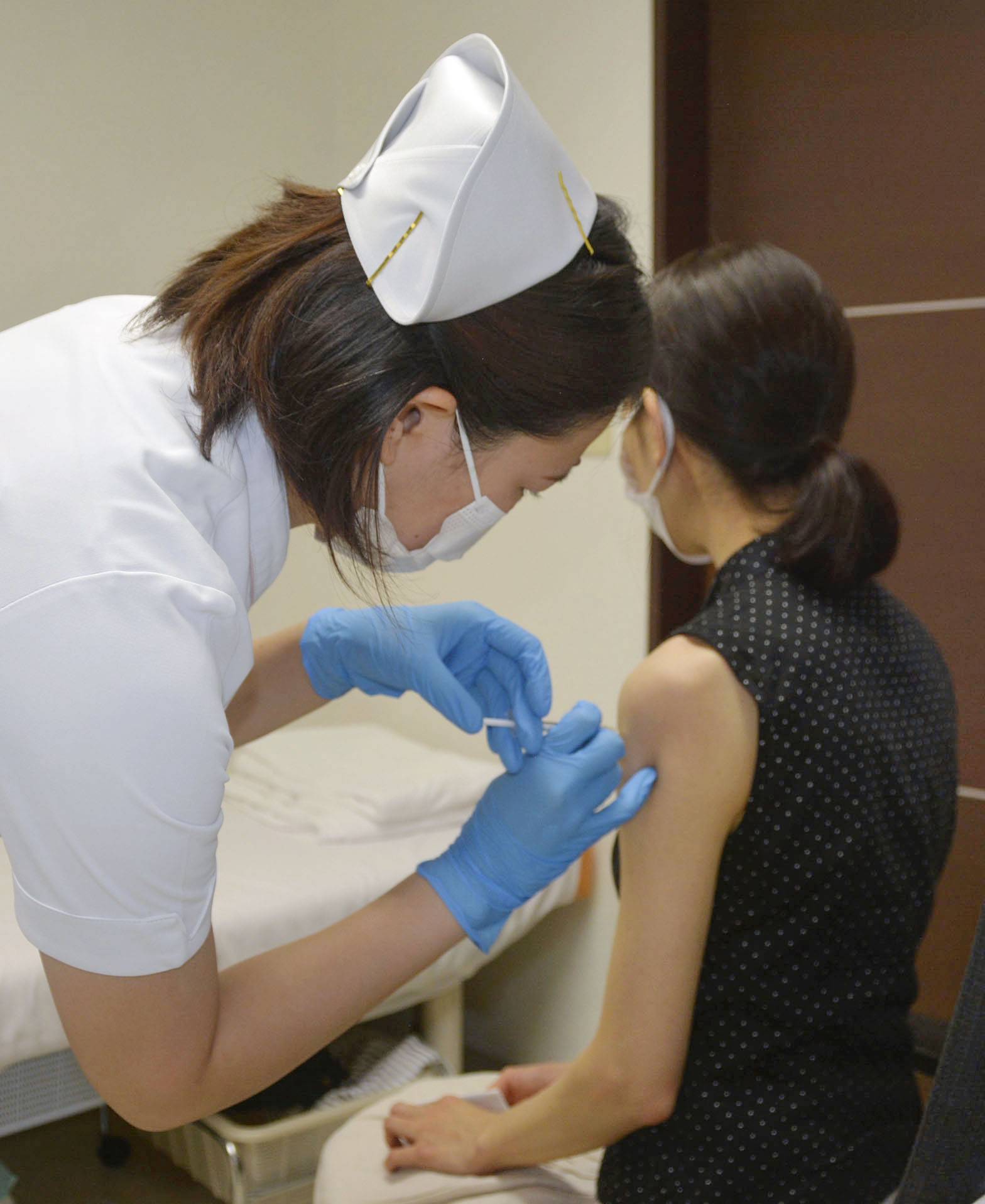The delta variant, which was first detected in India in October, is fueling a surge in new COVID-19 cases across the globe due to its higher transmissibility than other variants.
Here we take a look at how the delta variant compares with other variants of the coronavirus.
What is the delta variant?
The delta variant, first detected in a domestic patient on April 20, is now the main COVID-19 variant in many parts of Japan.
Classified as one of four variants of concern by the World Health Organization, the spread of the delta variant has quickly outpaced other strains in Japan and is now estimated to account for 95% of all cases in Tokyo, the government’s advisory panel said this week.
The U.S. Centers for Disease Control and Prevention believes it is as transmissible as chickenpox and about twice as contagious as the previous variants.
Initially, experts didn’t believe that fully vaccinated individuals who contracted the virus could spread it to other people, but the CDC no longer believes that is the case when it comes to delta as the variant appears to produce the same high amount of the virus in both unvaccinated and fully vaccinated people.
Fully vaccinated people, however, are likely to be infectious for a shorter period of time, the CDC says, as the amount of virus drops more quickly in breakthrough infections than infections in unvaccinated people.

Why is the delta variant so contagious?
SARS-CoV-2, the formal name of the virus that causes COVID-19, is composed of a chain of around 1,200 amino acids and has a spike protein that the coronavirus uses to infect human cells. It also mutates every few weeks. Many variants tend to have mutations around the middle of the amino acid sequence, and the delta variant, which has a genetic change in the 452nd amino acid, is no exception.
But mutations can occur in multiple areas of the virus, such as in delta plus, a subvariant of delta, which has additional mutations but is not necessarily more dangerous.
COVID-19 vaccines effectively provide a lid for the spike protein to prevent the virus from binding to the receptor and enter respiratory and digestive cells, explained Akira Nishizono, a professor of microbiology at Oita University’s Faculty of Medicine.
But even a slight change to the surface structure of the spike protein, as seen in new variants, may weaken the defense of the immune system triggered by the vaccine by causing it to fail to recognize the spike protein and produce antibodies against it. This results in increased contagiousness among vaccinated individuals compared to the original strain, he added.
Some scientists describe the delta variant as significantly more “sticky” than other variants in that it doesn’t let go easily once it gets hold of the target cells.
Studies from Canada and Scotland have shown that patients infected with the delta variant are more likely to be hospitalized than those infected with alpha or the original strain.
COVID-19 vaccines are highly effective at preventing severe symptoms and death, but given the surge in delta variant infections, the CDC last month tightened its indoor mask policy, saying that even fully vaccinated individuals should resume wearing masks indoors in public places in parts of the country where the variant is spreading rapidly. Experts believe that unvaccinated people remain at the highest risk, as breakthrough infections are still rare.
One thing to note regarding the effectiveness of the vaccines is a study conducted by the Mayo Clinic Health System in the U.S., which showed that Moderna Inc.’s vaccine may provide better protection against the delta variant than the shot developed by Pfizer/BioNTech. Both shots rely on messenger RNA technology.



In Florida, the risk of infection in July after full vaccination with Moderna’s shots was about 60% lower than after full vaccination with Pfizer’s vaccines, the study said, which was published on the medRxiv preprint server for health sciences on Sunday. Similarly, the estimate of the effectiveness of the Moderna vaccine against infection after full vaccination in Minnesota was 76% in July, compared with 42% for those vaccinated with the Pfizer shot, according to the study, which has not been peer-reviewed.
What is the lambda variant?
The lambda variant, first detected in Peru last December, has the same genetic change in the 452nd amino acid as the delta variant, which, according to Nishizono, is why it may be as contagious as the delta variant.
The lambda variant was first discovered in Japan at Haneda Airport on July 20 in a woman in her 30s who was affiliated with the Tokyo Olympics.
If the recent past is any indication, it’s unlikely lambda will replace the delta variant anytime soon, Nishizono added.
The alpha, beta and gamma variants all have the same mutations in the 501st amino acid, but the beta and gamma variants, first detected in South Africa and Brazil, respectively, did not spread significantly in Japan, while the alpha variant did, he said.
“Right now the delta variant is spreading rapidly, so there’s likely to be little room for the lambda variant to get in,” Nishizono said.
How should we protect ourselves from the coronavirus?
As has been the case throughout the pandemic, wearing a mask, keeping a distance from other people and refraining from speaking loudly over a sustained period are key precautionary measures, Nishizono said.
The rise in the new variants fueled concerns that the coronavirus could “outsmart” vaccines, but the shots are still key for protection, he said.
“It’s very important that people in the prime of their working life get the jabs soon.”
In Japan, more than 36% of the general population has been fully vaccinated, compared with over 83% of people age 65 and over, according to government data.
In a time of both misinformation and too much information, quality journalism is more crucial than ever.
By subscribing, you can help us get the story right.
SUBSCRIBE NOW


